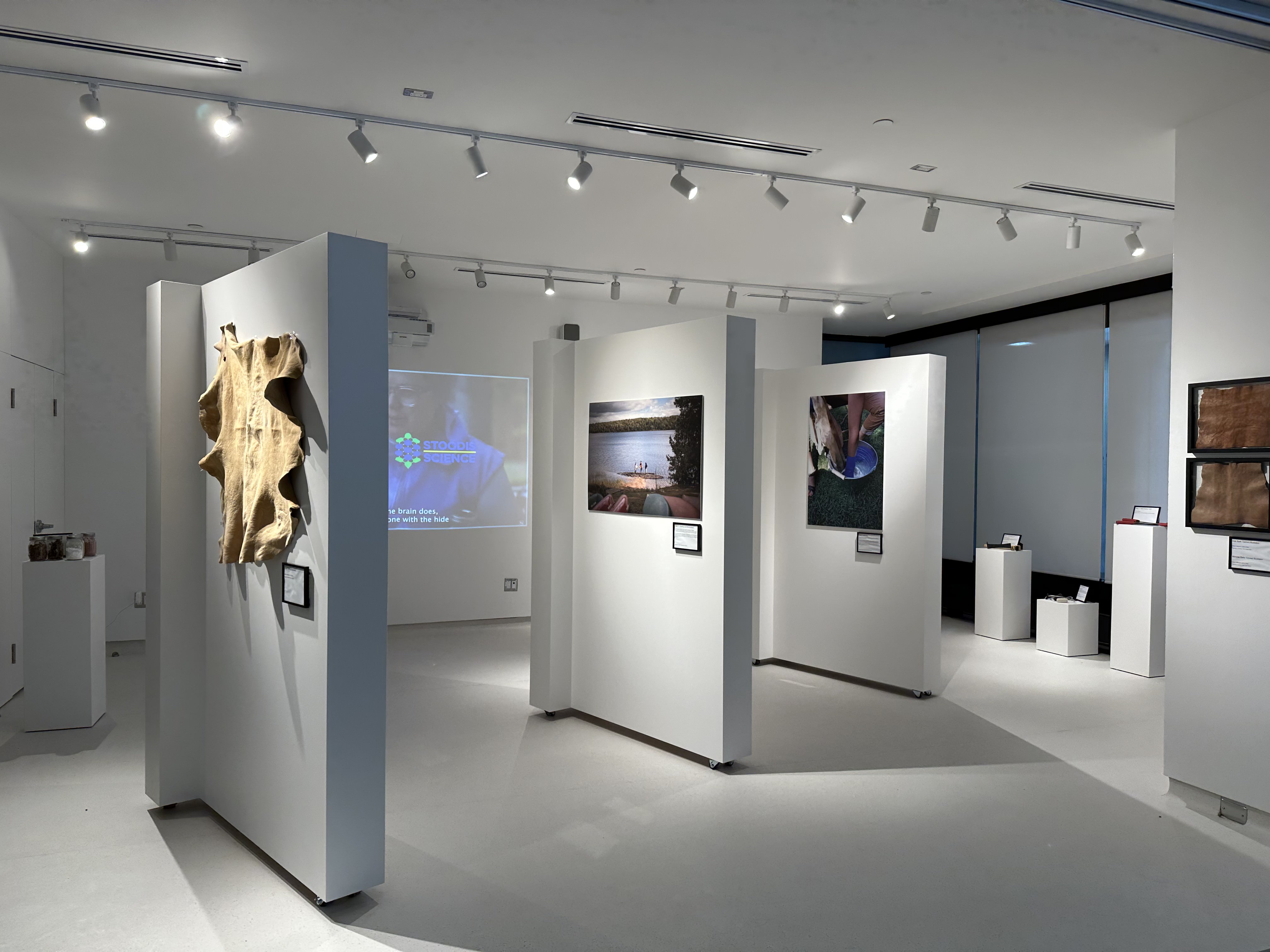Community Impact

Spreading the love for science to the masses
When the public has science literacy and critical thinking skills, we can have productive discussions on topics that make the world go round–like healthcare, the environment and technology. SciXchange, the outreach arm for the Faculty of Science, acknowledges how important access to science education is, regardless of gender, age or background. With a shared commitment to make science engaging, understandable and accessible for all, the SciXchange team of full-time staff, student coordinators and volunteers offer low-barrier community engagement programs year-round to address traditional imbalances in science, technology, engineering and math (STEM) disciplines.
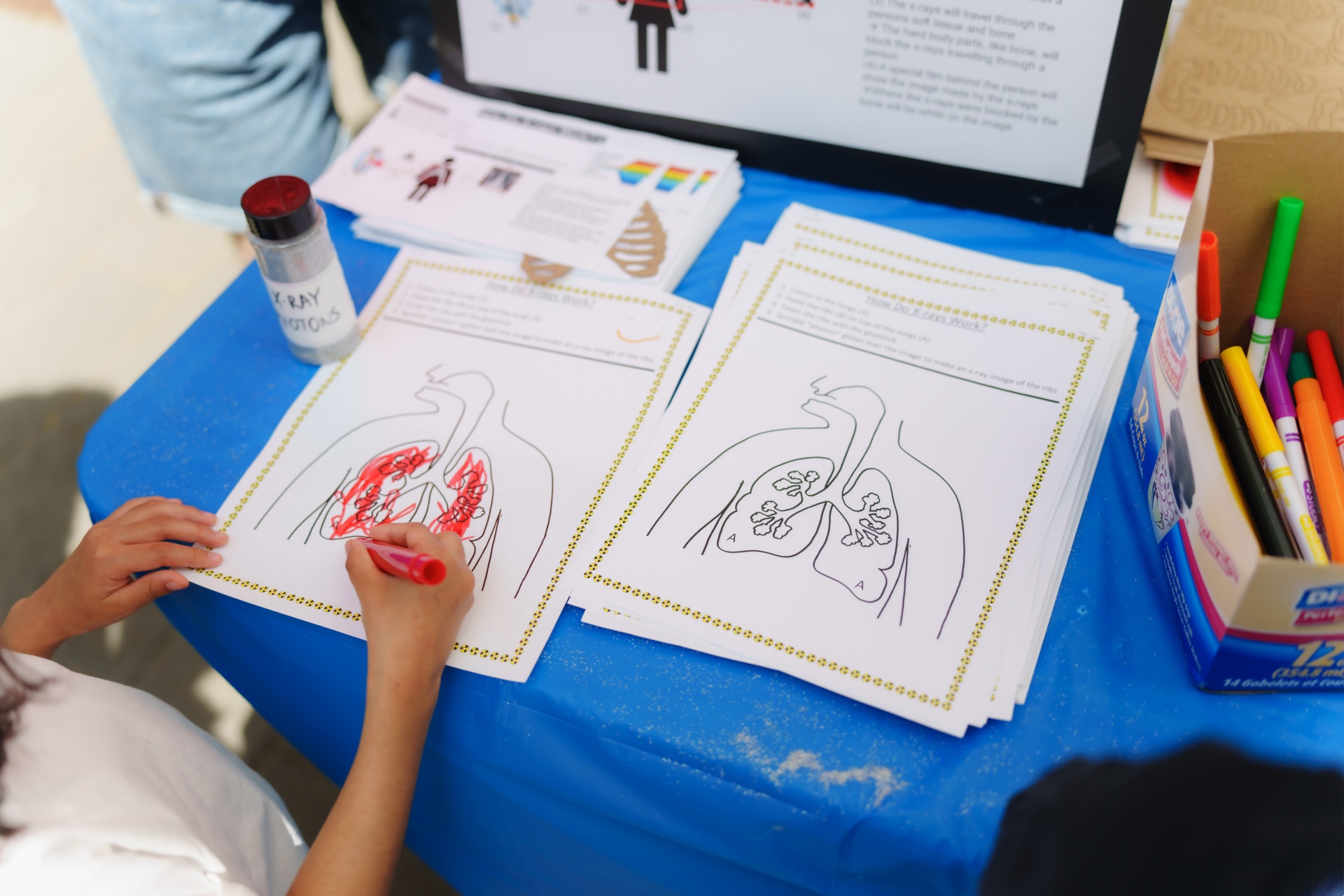
"In October 2023, I attended the Canadian Science Policy Conference in Ottawa, where I engaged in several conversations concerning equity, diversity and inclusion in STEM, and the associated challenges. These discussions helped to reinforce how important our SciXchange work is and how valuable our community connections are."
Nurturing the next generation of scientists
Early exposure to STEM education is crucial for developing the competencies that open the doors for a successful career in the sciences. Teaming up with Canadian STEM education charity Let’s Talk Science (external link) , SciXchange hosted over 40 science programming sessions at elementary and high schools in 2023 to build the skills and curiosity needed for a future in STEM. Meanwhile, as the host of the Toronto chapter of the annual Technovation Girls competition, SciXchange volunteers showed girls that they have the power to change the world with technology. Guided by mentors, girls aged 8-18 delved into the global competition, collaborating in teams to tackle real-world challenges. Among the 21,000 girls that participated in the program this year, five teams in the Toronto chapter advanced to the semi-finals, with one team earning a spot in the World Summit in Silicon Valley. On campus, Eureka Camps, a collaboration between the Faculty of Science, the Faculty of Engineering and Architectural Sciences and TMU athletics, served as a gateway for introducing children to the world of STEM. The annual summer camp offered four weeks of hands-on and engaging activities, transforming Kerr Hall labs, lecture halls and campus spaces into kid-friendly experimentation zones.



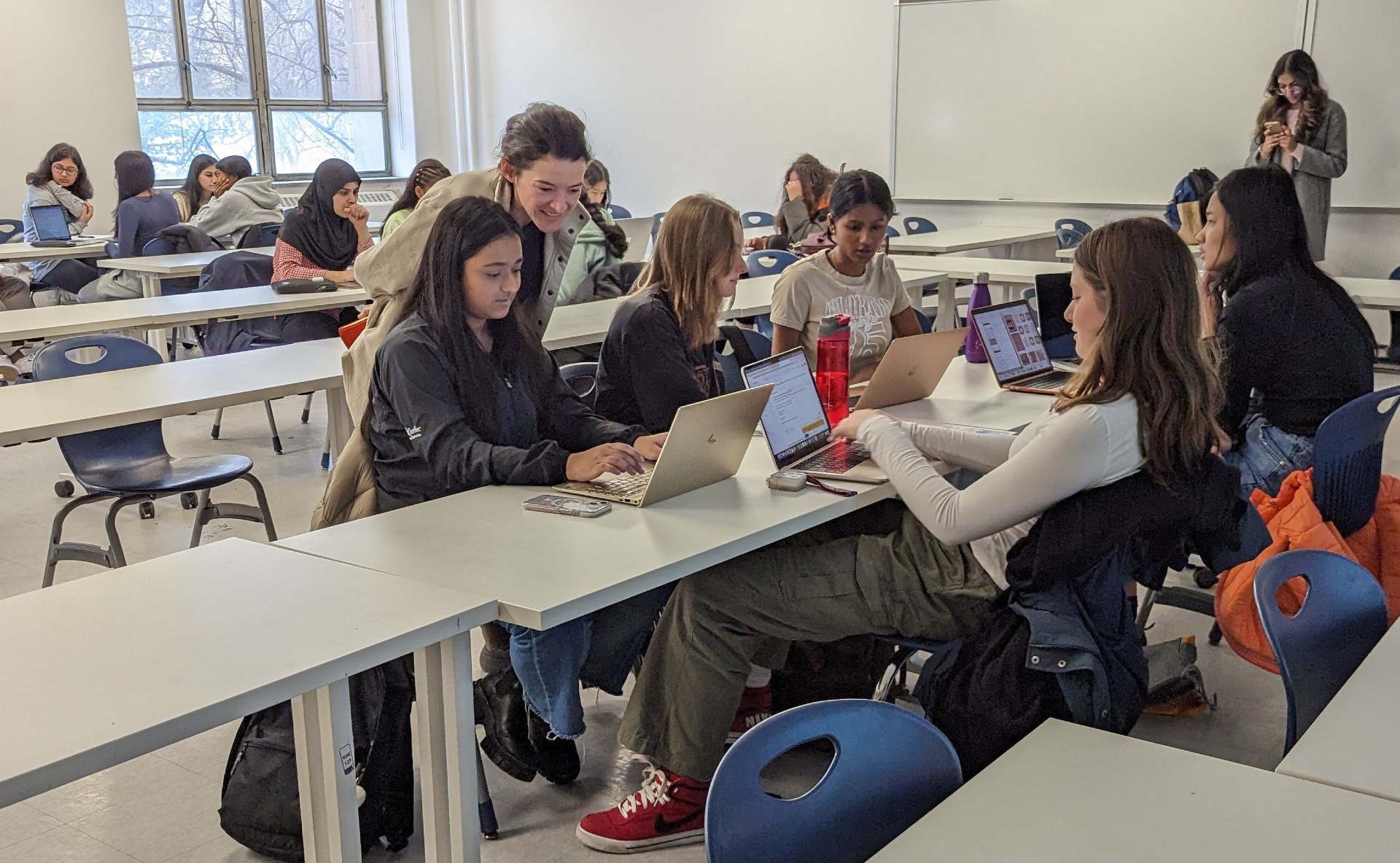
Building a vibrant community of science enthusiasts
2023 was a lively year of community programming, offering events across the city that reached audiences from all walks of life. This year, Science Rendezvous drew over 1,000 community members to campus. Organized by a team of 110 dedicated volunteers from the Faculty of Science, the annual festival featured a variety of booths showcasing hands-on science experiences, including a slime-making workshop, giant bubble-making, human piano experiments and Indigenous wampum belt crafting. Soapbox Science (external link) , another annual favourite, took place at the Word on the Street Festival at Queen’s Park this year. As the facilitators of the Toronto branch of Soapbox Science, SciXchange provided the platform for women and non-binary scientists from TMU and local universities to speak about their research to the public in an accessible, informal setting. Lastly, Let’s Talk Climate (inJustice) returned for its second year, focusing on the pressing social justice issues related to extreme weather and climate crisis. The symposium brought together six speakers, a mix of international and local industry experts and advocates, to shed light on the disproportionate effects of climate change on marginalized communities.
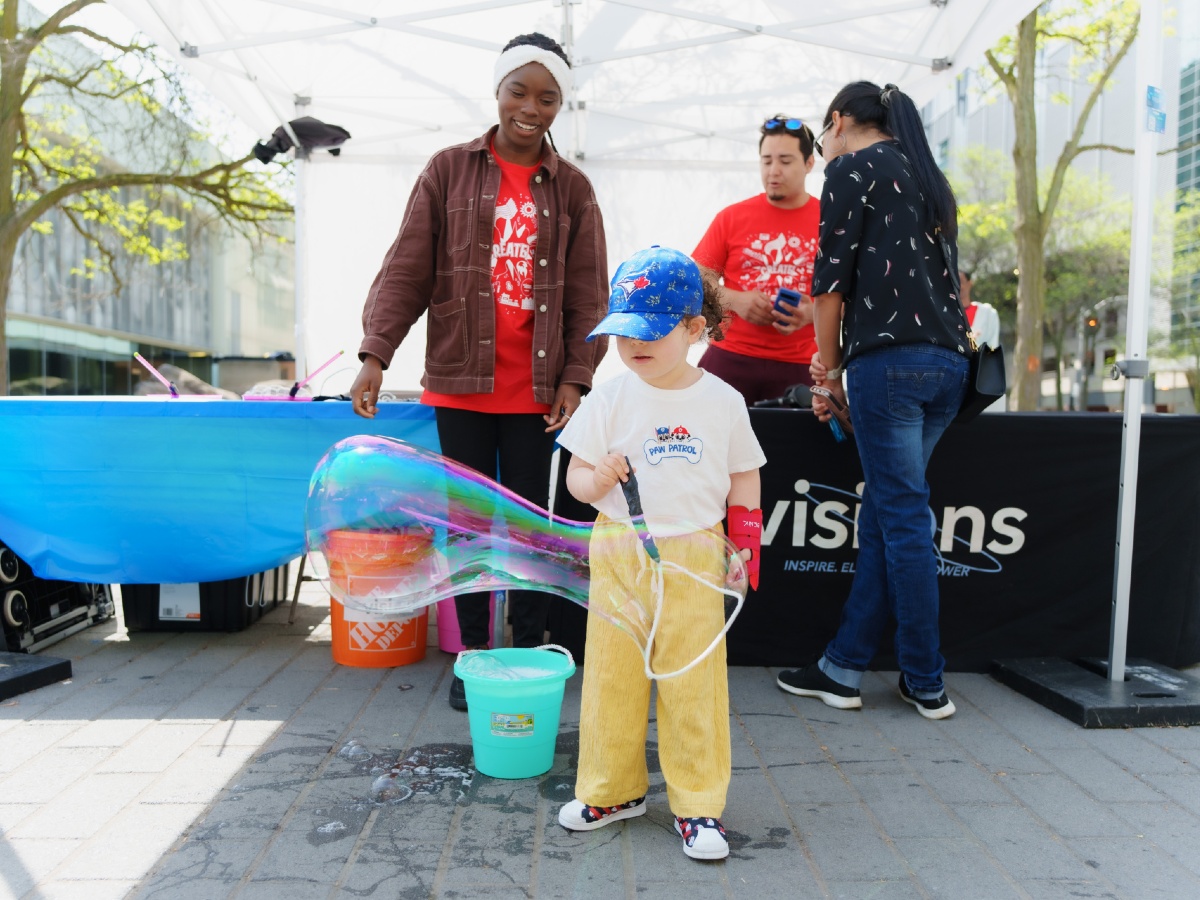
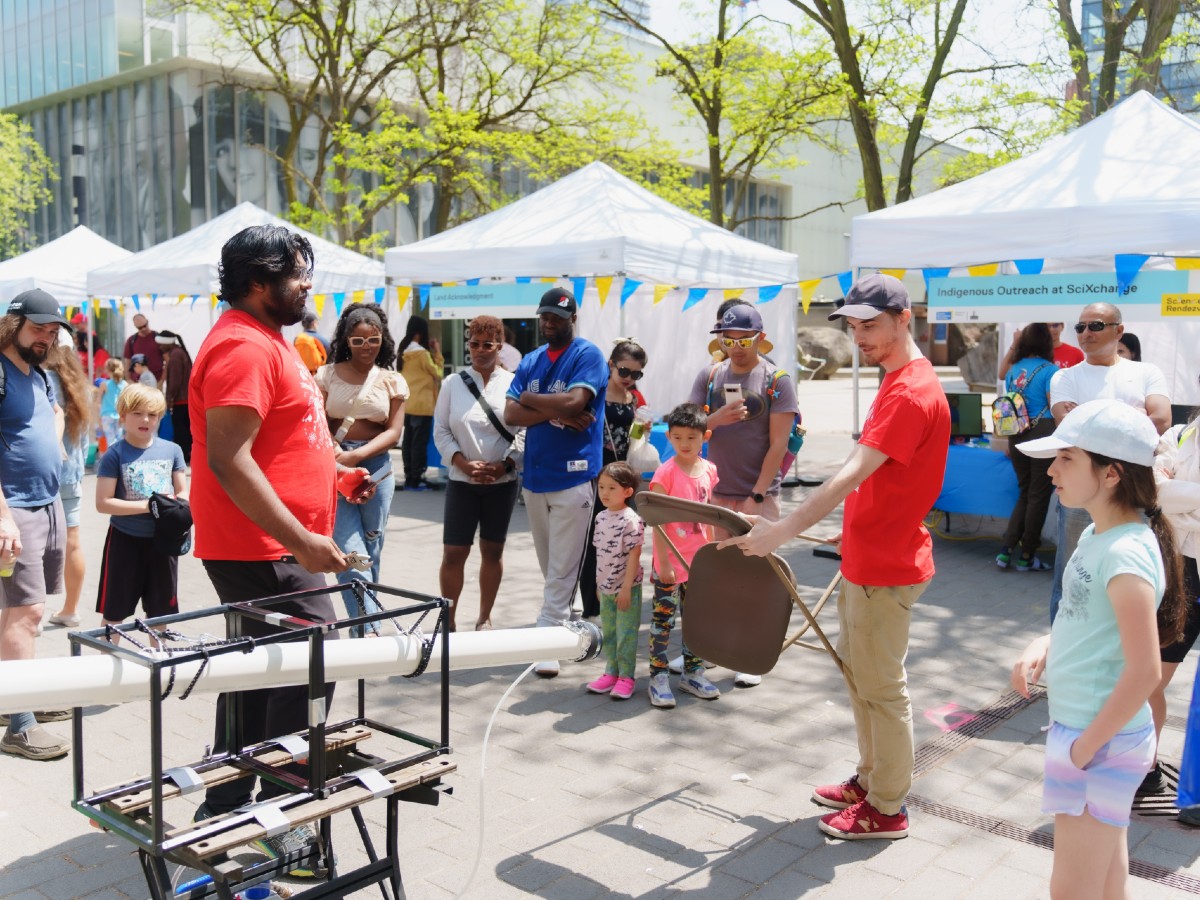
Indigenizing science through interactive workshops
This year, SciXchange’s Indigenous programming branch, Stoodis Science, continued to expand its reach while introducing various new initiatives to the TMU community and beyond. Building on existing relationships with urban Indigenous communities, the Toronto District School Board and the Urban Indigenous Education Centre, Stoodis Science brought 25 engaging in-class workshops to Indigenous youth between grades 3-12. Indigenous Scientist Chats returned for its third year under a new name, Indigenous STEAM Speaker Series, to highlight and account for the work of Indigenous leaders in science, technology, engineering, arts and math (STEAM) spaces. This year's Science Literacy Week and TMU Indigenous Education Week brought an exciting new showcase – a hide tanning gallery at the inaugural showing of the POD Student Gallery space, highlighting community contributions to the art and science of Indigenous hide tanning practices. The exhibit included photos from previous hide tanning workshops hosted on campus, the tools used to complete the process and the finished hides. Off-campus, Stoodis Science hosted its first snowshoe workshop in collaboration with the Ontario Science Centre, where families and children explored the science and Indigenous roots behind snowshoeing and had the opportunity to make their very own pair of mini snowshoes.
The team at SciXchange aims to continue offering programs and developing content that blend Indigenous knowledge with the Ontario science curriculum, with a strong commitment to cultural relevance and responding to the needs of Indigenous youth. SciXchange is dedicated to increasing the accessibility of cultural programming, and looks forward to expanding its capacity to deliver hide tanning programs to Indigenous youth, as well as partnering with schools and knowledge keepers to expand their reach and impact in the future.
